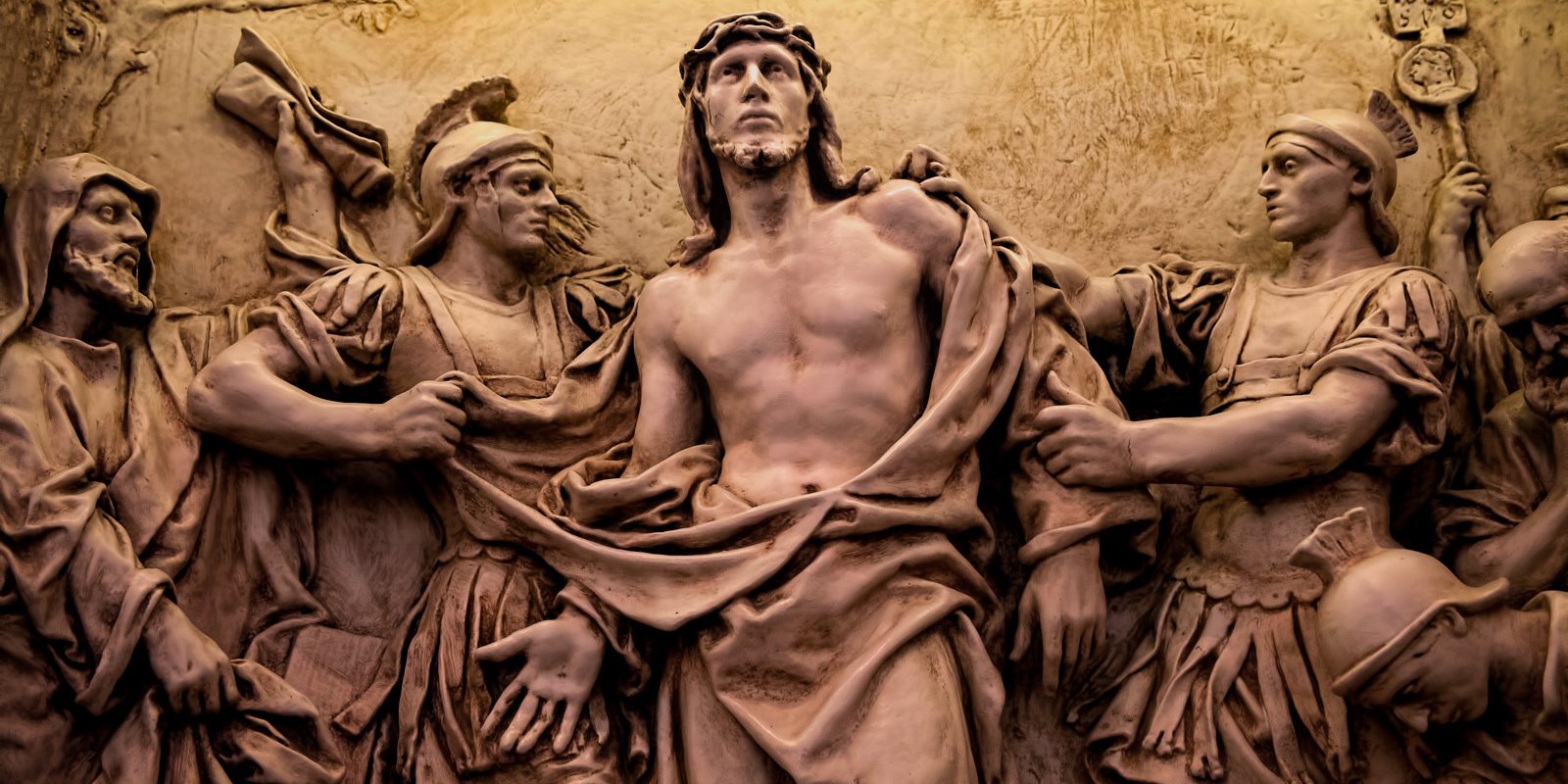Regina Caeli – Queen of Heaven, Rejoice!
The Regina Caeli, Latin for “Queen of Heaven,” is a hymn and prayer ...

Gregory of Nazianzen here provides us a wonderful guide to meditating on the Passion of Christ in a way that will make Holy Week and the Triduum a life-changing experience. We are enter into the paschal sacrifice by finding ourselves in the various actors of the drama.
W
e are soon going to share in the Passover, and although we still do so only in a symbolic way, the symbolism already has more clarity than it possessed in former times because, under the law, the Passover was, if I may dare to say so, only a symbol of a symbol.
Before long, however, when the Word drinks the new wine with us in the kingdom of his Father, we shall be keeping the Passover in a yet more perfect way, and with deeper understanding. He will then reveal to us and make clear what he has so far only partially disclosed. For this wine, so familiar to us now, is eternally new.
It is for us to learn what this drinking is, and for him to teach us. He has to communicate this knowledge to his disciples, because teaching is food, even for the teacher.
So let us take our part in the Passover prescribed by the law, not in a literal way, but according to the teaching of the Gospel; not in an imperfect way, but perfectly; not only for a time, but eternally. Let us regard as our home the heavenly Jerusalem, not the earthly one; the city glorified by angels, not the one laid waste by armies.
We are not required to sacrifice young bulls or rams, beasts with horns and hoofs that are more dead than alive and devoid of feeling; but instead, let us join the choirs of angels in offering God upon his heavenly altar a sacrifice of praise. We must now pass through the first veil and approach the second, turning our eyes toward the Holy of Holies. I will say more: we must sacrifice ourselves to God, each day and in everything we do, accepting all that happens to us for the sake of the Word, imitating his passion by our sufferings, and honoring his blood by shedding our own. We must be ready to be crucified.
If you are a Simon of Cyrene; take up your cross and follow Christ. I f you are crucified beside him like one of the thieves, now, like the good thief, acknowledge your God. For your sake, and because of your sin, Christ himself was regarded as a sinner; for his sake, therefore, you must cease to sin. Worship him who was hung on the cross because of you, even if you are hanging there yourself. Derive some benefit from the very shame; purchase salvation with your death. Enter paradise with Jesus, and discover how far you have fallen. Contemplate the glories there, and leave the other scoffing thief to die outside in his blasphemy.
If you are a Joseph of Arimathea, go to the one who ordered his crucifixion, and ask for Christ’s body. Make you own the expiation for the sins of the whole world. If you are a Nicodemus, like the man who worshiped God by night, bring spices and prepare Christ’s body for burial. If you are one of the Marys, or Salome, or Joanna, weep in the early morning. Be the first to see the stone rolled back, and even the angels perhaps, and Jesus himself.
This post is an excerpt from a fourth century homily by Saint Gregory Nazianzen (Oratio 45, 23-24: PG 36, 654-655). It appears in the Roman Office of readings for Saturday of the fifth (5th) week of Lent, just as the Church is ready to enter into the observance of Holy Week. Gregory here beckons us to enter into the drama of the Triduum and the Paschal Sacrifice by finding ourselves in the story. The accompanying biblical reading is taken from Hebrews 8:1-13.
Featured Image Ecce Homo by Antonio Ciseri. Public Domain.
No Comments